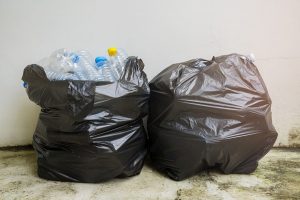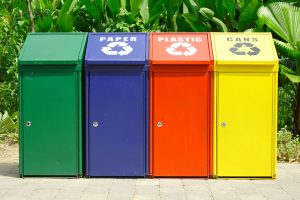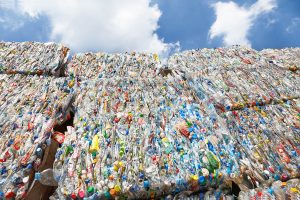 The group that runs Oregon’s container deposit program announced it will donate unredeemed deposit money to charitable purposes if the redemption rate for containers drops below 80 percent.
The group that runs Oregon’s container deposit program announced it will donate unredeemed deposit money to charitable purposes if the redemption rate for containers drops below 80 percent.

 The group that runs Oregon’s container deposit program announced it will donate unredeemed deposit money to charitable purposes if the redemption rate for containers drops below 80 percent.
The group that runs Oregon’s container deposit program announced it will donate unredeemed deposit money to charitable purposes if the redemption rate for containers drops below 80 percent.
 Keep America Beautiful, which runs America Recycles Day and other initiatives, is closing its Washington, D.C. office and consolidating staff in Connecticut. Two leaders from the organization’s recycling arm are exiting as part of the shift.
Keep America Beautiful, which runs America Recycles Day and other initiatives, is closing its Washington, D.C. office and consolidating staff in Connecticut. Two leaders from the organization’s recycling arm are exiting as part of the shift.

Last year presented an upheaval in the global recovered plastics market, and the impacts continue to roll in. Three experts recently shared their thoughts on the specific causes of the volatility.
 Officials in China have announced an enforcement campaign to implement the country’s new import restrictions.
Officials in China have announced an enforcement campaign to implement the country’s new import restrictions.
 Chinese recycling executives see a promising outlook for Asian companies looking to invest in the U.S. as a result of China’s import restrictions.
Chinese recycling executives see a promising outlook for Asian companies looking to invest in the U.S. as a result of China’s import restrictions.
 City leaders have voted to prohibit Baltimore restaurants from providing expanded polystyrene foodservice items.
City leaders have voted to prohibit Baltimore restaurants from providing expanded polystyrene foodservice items.
 Pricing for recovered PET and HDPE packaging has been stronger lately, but bulky rigid and film values have remained flat over the past few months.
Pricing for recovered PET and HDPE packaging has been stronger lately, but bulky rigid and film values have remained flat over the past few months.
 The Association of Plastic Recyclers will explore high-interest topics during its 2018 webinars, including California’s packaging regulations, a project to pinpoint plastics that fall through the cracks, sustainable materials management’s relationship to recycling and more.
The Association of Plastic Recyclers will explore high-interest topics during its 2018 webinars, including California’s packaging regulations, a project to pinpoint plastics that fall through the cracks, sustainable materials management’s relationship to recycling and more.
 With China having recently shaken up export possibilities, industry leaders in the U.S. have amplified their calls for more domestic markets for recyclables. Two upcoming events aim to accelerate that process.
With China having recently shaken up export possibilities, industry leaders in the U.S. have amplified their calls for more domestic markets for recyclables. Two upcoming events aim to accelerate that process.
 Last month, readers were drawn to stories about China’s market impacts, efforts to re-open a plastics recycling facility, insights into TerraCycle and ideas for fixing recycling economics.
Last month, readers were drawn to stories about China’s market impacts, efforts to re-open a plastics recycling facility, insights into TerraCycle and ideas for fixing recycling economics.
